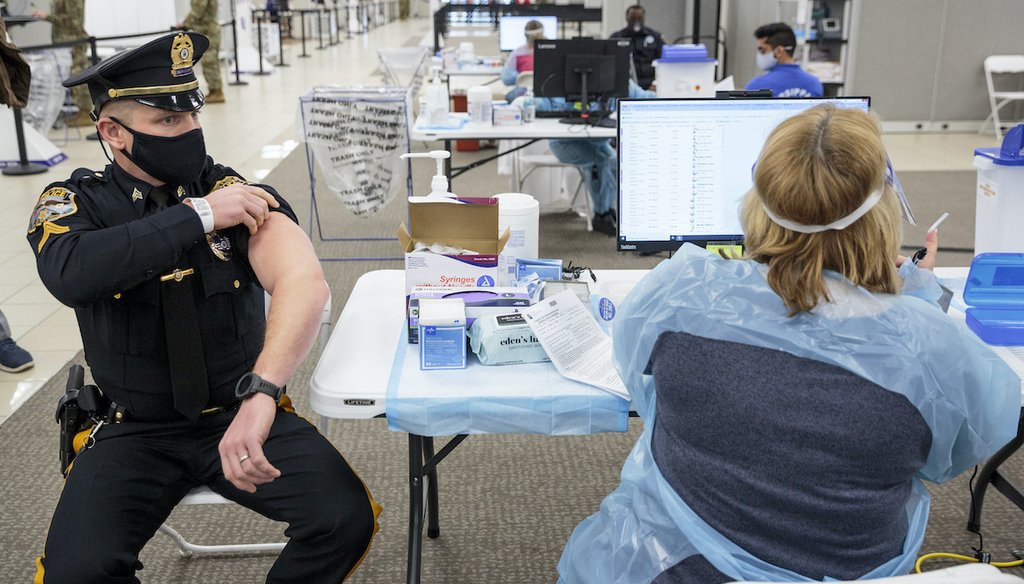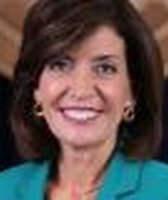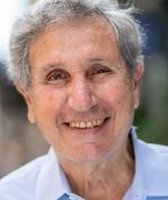Stand up for the facts!
Our only agenda is to publish the truth so you can be an informed participant in democracy.
We need your help.
I would like to contribute

Sergeant Michael Zarro, of the Mount Olive, NJ, Police Department, rolls up his sleeve to receive a COVID-19 vaccination at the Morris County, vaccination site, in Rockaway, NJ, Jan. 8, 2021. (AP)
If Your Time is short
-
The two COVID-19 vaccines that have received the U.S. Food and Drug Administration’s emergency use authorization require two shots.
-
Under a new distribution strategy, the Trump administration will make all current vaccine supplies available to states, rather than holding back supplies reserved for second doses.
-
The strategy falls in line with the plan President-elect Joe Biden said he’d put in place when he takes office Jan. 20, aiming to get more Americans vaccinated as soon as possible.
As the United States continues to set daily record highs for COVID-19 cases and deaths, the Trump administration is embracing a new vaccine distribution strategy: Give states all available doses instead of holding back supply reserved for second doses.
"We are now making the full reserve of doses we have available for order," Health and Human Services Secretary Alex Azar said Jan. 12. "We are 100% committed to ensuring a second dose is available for every American who receives a first dose."
The two COVID-19 vaccines that have received the U.S. Food and Drug Administration’s emergency use authorization require two shots. The two Pfizer-BioNtech vaccine doses are to be given 21 days apart, and the two Moderna vaccine doses 28 days apart.
The new vaccine rollout strategy falls in line with the plan President-elect Joe Biden said he’d put in place once he takes office Jan. 20, aiming to get more Americans vaccinated as soon as possible.
Azar said that it had always been the Trump administration’s intent to make the strategy change once officials had confidence in the supply chains.
The change doesn’t affect the government’s recommendations about vaccine administration. About a week before Azar’s announcement, the FDA cautioned against changes to the FDA-authorized dosing or schedules of the vaccines.
Here’s what we know at this point about the vaccine distribution plans.
If supplies are limited, people receiving second doses will still get priority.
"Going forward, each week, doses available would be released to first cover the needed second doses and then cover additional first vaccinations," Azar said, adding that there’s now a consistent pace of vaccine production.
If there are any hitches in production, doses that become available would be used to fulfill the second-dose needs first, and any first doses would be delayed, Azar said.
Based on the science and evidence from the vaccines’ clinical trials, "it is imperative that people receive their second doses on time," Azar said. The goal is to get people their second dose at the 21- or 28-day mark — depending on which vaccine they’ve received — because that’s how the studies demonstrating their effectiveness were conducted, he said.
There is still a lot that’s unknown about the COVID-19 vaccines. But with vaccines for other diseases, a longer interval between doses doesn’t necessarily diminish the vaccine’s effectiveness, said Christopher Gill, an associate professor of global health at Boston University’s School of Public Health.
"Generally, with most vaccines, if you space doses out longer, the vaccine actually works better," Gill said, adding that "we only know that in other vaccines that’s true."
Data from the Pfizer and Moderna clinical trials indicate that the vaccines achieved about 90% efficacy after the first dose, and their efficacy increased to 95% after the second dose, Gill said.
The FDA said on Jan. 4 that in the phase 3 trials, 98% of participants in the Pfizer trial and 92% of participants in the Moderna trial received two doses of the vaccines at the respective three- or four-week interval. Trial participants who did not receive a second dose were generally followed only for a short period of time, "such that we cannot conclude anything definitive about the depth or duration of protection after a single dose," the FDA said.
There is no data available on the interchangeability of the COVID-19 vaccines, and people should get two doses of the same vaccine, the FDA said. Other experts mostly echoed this.
There is no evidence to indicate whether mixing the vaccines would be more or less effective, said Barry R. Bloom, an immunology and infectious-disease expert at the Harvard T.H. Chan School of Public Health.
"Without data it is impossible to make a recommendation," Bloom said. "There is no a priori reason to believe that it would not produce a booster response, but we have no evidence."
Gill said that the Pfizer and Moderna vaccines are similar in that they both work by presenting a human cell with the genetic instructions to create the coronavirus spike protein. And ultimately, it’s the spike protein that creates the immune response, he said.
"Since the end product of both vaccines is essentially the same, one would predict that mixing the Pfizer and Moderna vaccines probably does not matter very much," Gill said. "That would not be true of other vaccines. For example, GSK and Pfizer both have a vaccine against meningitis type B. But they are designed in such different ways that mixing them would not necessarily work."
Based on the studies from Pfizer and Moderna, "we expect that you will have immunity from a vaccine for longer than three months," U.S. Surgeon General Jerome M. Adams said Jan. 11 during a question and answer session on Twitter.
"About two weeks after you receive your second dose is when we think you’ll receive maximal protection from the vaccines," Adams said, emphasizing that people still need to wear masks, wash hands, and social distance even after being vaccinated to maximize protection against COVID-19.
More data is still needed to better understand how long immunity produced by vaccination lasts, says the Centers for Disease Control and Prevention.
Adams said vaccines often give better protection than natural immunity, the immunity someone gains from having an infection. Natural immunity varies from person to person, and some early evidence suggests it may not last very long, the CDC says.
The Trump administration and incoming Biden administration appear confident about being able to deliver a steady supply of second doses on time. But there are risks with the new strategy, said Jennifer Reich, a sociology professor at the University of Colorado-Denver who has studied reasons why people refuse vaccines.
"On one hand, people who want the vaccine perceive that it is difficult to get and are losing faith in health care providers who are not able to provide clear answers on how and when they can access a vaccine," Reich said. "On the other hand, we continue to have a sizable minority of people who do not yet feel the vaccine is trustworthy and prefer to wait and see the long-term safety and efficacy or skip it all together. The effort to release more doses quickly will not alone solve either problem."
Logistical support and funding for accessible distribution will be key going forward, Reich said.
"If manufacturing is able to keep pace, then increasing access would be great," Reich said. "If people are not able to access a second dose and do not experience the protection the authorized two-dose series promises, this could potentially harm trust in the vaccine and undermine confidence in public health officials."
But Bloom said it’s important to note why the strategy is shifting: "The premise is that there is evidence that some protection is generated by the first dose, and that we are reaching astronomical levels of hospitalizations and deaths."
"Vaccines in storage do not save lives," he said, "so the decision to get them into as many people is an effort to save as many lives as possible as quickly as possible, particularly since the more viruses out there the great number of variants will arise."
Johnson & Johnson may submit an application to the FDA for emergency use authorization of its single-shot COVID-19 vaccine candidate at the end of January. If that happens, FDA authorization could come in mid-February, said Dr. Moncef Slaoui, chief adviser for Operation Warp Speed, the federal government’s initiative to speed development of COVID-19 vaccines and other therapeutics.
"We project to have single digit million number of doses available in the second half of February," Slaoui said, adding that the production would increase after that.
AstraZeneca may apply for emergency use authorization for its vaccine candidate in early March, which it could receive later in the month, Slaoui said.
Slaoui said that Novavax continues to recruit participants for its COVID-19 vaccine trial.
The federal government is playing a significant role in efforts to develop and test vaccine candidates, mass-produce them and distribute them nationwide. Congress directed almost $10 billion for Operation Warp Speed efforts and has appropriated other flexible funding.
RELATED: How Pfizer's and Moderna's COVID-19 vaccines are tied to Operation Warp Speed
Our Sources
Rev.com, Operation Warp Speed COVID-19 Press Conference Transcript by Defense Officials January 12, 2021
Twitter, @Surgeon_General tweet, tweet, Jan. 11, 2021
Phone interview, Christopher Gill, an associate professor of global health at Boston University’s School of Public Health, Jan. 11, 2021
Email interview, Barry R. Bloom, an immunology and infectious-disease expert at the Harvard T.H. Chan School of Public Health, Jan. 12, 2021
Email interview, Jennifer Reich, a sociology professor at the University of Colorado-Denver who has studied reasons why people refuse vaccines, Jan. 12, 2021
HHS.gov, Fact Sheet: Explaining Operation Warp Speed, Content last reviewed Dec. 21, 2020
CDC.gov, Facts about COVID-19 Vaccines, Last updated Jan. 4, 2021
CDC.gov, Frequently Asked Questions about COVID-19 Vaccination, updated Dec. 29, 2020
FDA.gov, Moderna COVID-19 Vaccine; Pfizer-BioNTech COVID-19 Vaccine
FDA.gov, FDA Statement on Following the Authorized Dosing Schedules for COVID-19 Vaccines, Jan. 4, 2021






































